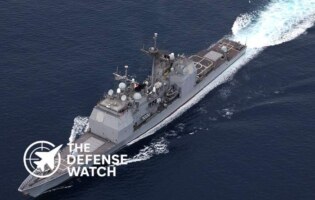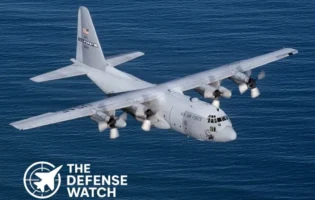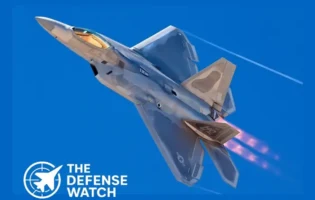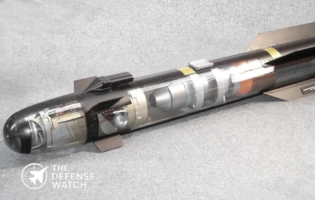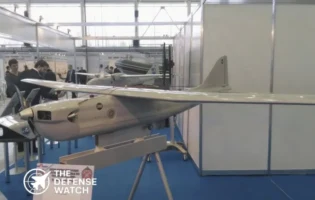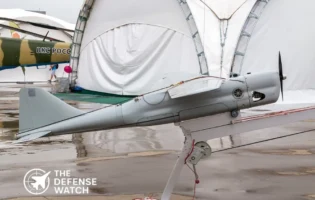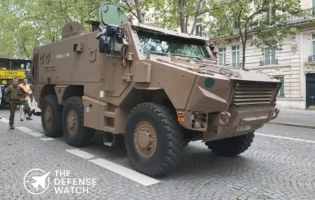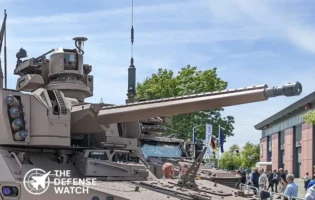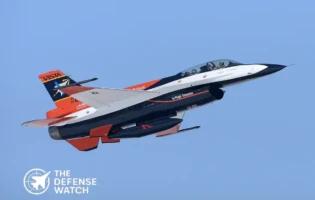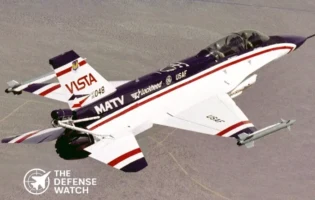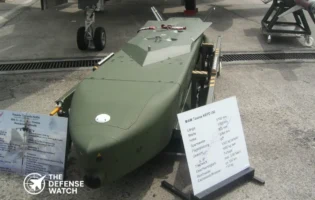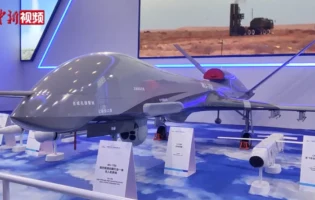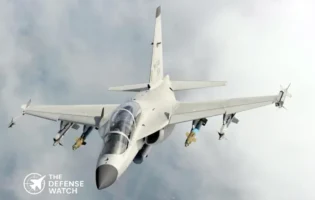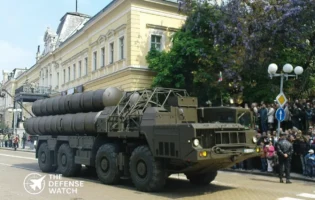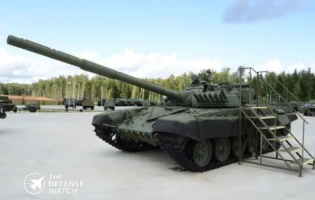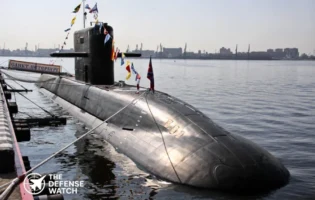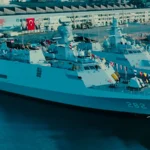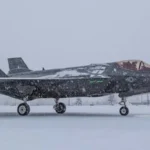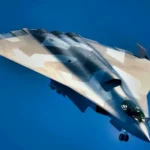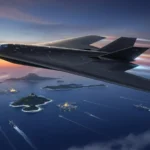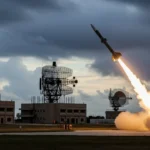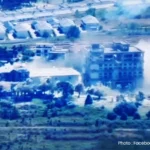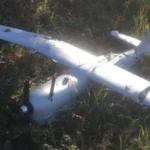- Home
- Catalog
- Artillery & Indirect Fire
- M142 HIMARS
M142 HIMARS


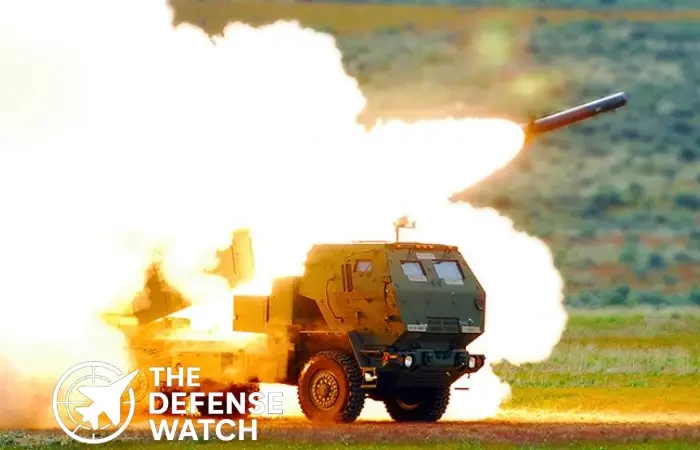
Full Specifications
1. General Information
| System Name | M142 HIMARS (High Mobility Artillery Rocket System) |
| Manufacturer | Lockheed Martin |
| Country of Origin | United States |
| Type / Role | Rocket Artillery / Precision Strike System |
| Caliber | 227 mm (GMLRS rockets) / ATACMS (missile family) |
| Year Introduced | 2005 (initial fielding) |
| In Service | Yes |
| Unit Cost | Approx. USD 4.5–6 million per launcher (varies by package) |
| Crew Required | 3 personnel (typical) |
| Platform Type | Truck-mounted (6×6 tactical vehicle) |
| Power Source | Diesel (vehicle engine) |
2. Performance & Firepower
| Maximum Effective Range | GMLRS: ~70–80 km (typical) / ATACMS: up to ~300 km (variant) |
| Minimum Range | ~1.5–15 km (depending on munition and profile) |
| Rate of Fire (Sustained / Burst) | One pod: 6 rockets in under a minute (salvo); reloads between 5–15 min |
| Accuracy (CEP) | ≤ 10 m (GMLRS GPS/INS guided) |
| Elevation Range | Dependent on launcher geometry; sufficient to engage area targets |
| Traverse Range | 360° (platform can slew launcher/routing as required) |
| Recoil System | Rocket launch (soft-mount considerations); vehicle damping provided |
| Reload Time | 5–15 minutes to change pods (crew & resupply dependent) |
3. Ammunition & Warhead Options
| Compatible Ammunition | GMLRS (unitary & alternative warheads), ATACMS, future PrSM |
| Caliber Standard | 227 mm rockets; ATACMS missile family |
| Warhead Type | Unitary HE, alternative warheads (unitary/area effects), precision-guide |
| Warhead Weight | Varies by rocket/missile (GMLRS unitary ≈ 90–100 kg warhead; ATACMS larger) |
| Fuse Type | Impact / Programmable (munitions dependent) |
| Muzzle Velocity | Rocket-propelled flight profiles (not applicable as ballistic muzzle) |
| Guidance | GPS/INS (primary); advanced navigation aids in specific munitions |
| Effective Burst Radius | Munition-dependent; GMLRS unitary: tens of meters; area warheads larger |
4. Fire Control & Targeting Systems
| Fire Control System | Digital ballistic computer integrated with launcher controls |
| Aiming System | GPS + INS, onboard sensors; inertial navigation |
| Communication Link | Tactical data link / secure radio / ability to integrate with C2 |
| Night Operation | Full mission-capable with digital fire control and sensor feeds |
| Automation Level | Semi-automated mission planning and fire sequencing |
| Targeting Assistance | Integration with UAV spotters, forward observers, radar and C2 nets |
5. Launcher / Platform & Mobility
| Platform Type | Truck-mounted (6×6 tactical truck — FMTV / equivalent) |
| Vehicle Model | FMTV family / M1140-series or equivalent tactical truck |
| Mobility Range | ~480–500 km (operational range; payload & config dependent) |
| Top Speed | ~85–95 km/h (on-road) |
| Ground Clearance | ~300–350 mm (typical truck) |
| Setup / Emplacement Time | ≲ 3 minutes (deploy-fire-relocate shoot-and-scoot) |
| Transportability | C-130 / C-17 air transportable (with prep) |
6. Protection & Survivability
| Armor Level | Light (driver/cab protection options available) |
| CBRN Protection | Optional/vehicle-dependent |
| Counter-Battery Radar Integration | Yes (networked integration with radar/networks) |
| Smoke Launcher System | Optional on vehicle variants |
| Shoot-and-Scoot Capability | Yes (designed for rapid displacement after firing) |
| Signature Reduction | Tactical procedures + reduced dwell times |
7. Command, Control & Networking
| C2 System | Integrates with Brigade/Division Fires C2 and BMS |
| Connectivity | SATCOM (optional), secure radios, tactical data link |
| Network Capability | Fully networked (UAVs, radars, forward observers) |
| Operation Mode | Manual, semi-automated, networked fire missions |
| Compatible Systems | UAV spotters, counter-battery radars, Joint fires networks |
8. Operational History
| Primary Operators | United States, Ukraine (provided), Poland, Romania, Singapore, UAE (varies) |
| Combat Proven | Yes (Iraq, Syria, Ukraine reported use) |
| Operational Deployment | Deployed in expeditionary operations and allied forces |
| Conflict History | Iraq War, Syria operations, Ukraine conflict (2022–present) |
| Notable Feature | High accuracy, mobility, and rapid response long-range fires |
9. Dimensions & Weight
| System Weight | Vehicle + launcher: ~16,000–18,000 kg (variant dependent) |
| Transport Configuration | Air/Sea/Land compatible |
10. Maintenance & Support
| Maintenance Cycle | Manufacturer scheduled periodic maintenance; hourly/mission checks |
| Field Servicing Time | Minor field repairs < 1 hour typical (component dependent) |
| Spare Parts Availability | High for US / allied supply chains; depends on contract |
| Training Requirement | Crew initial qualification ~2–4 weeks; sustainment training ongoing |
| Support Package | OEM ILS / Army logistic support packages available |
11. Economic / Procurement Data
| Estimated unit cost | Launcher ≈ USD 4.5–6 million (depends on config & packages) |
| Cost per Round | GMLRS ≈ USD ~100,000 (public estimates vary by variant & contract) |
| Country Procurement Program | U.S. Army procurement & Foreign Military Sales to allies |
| Export Status | ITAR-controlled; exports via FMS approvals |
| Manufacturer Website | Lockheed Martin — product pages and program fact sheets |
PROS
- Exceptional long-range precision strike capability
- Rapid mobility and C-130 transportability
- Combat-proven reliability in multiple conflicts
- Advanced digital fire control and GPS guidance
- Low maintenance and high operational availability
CONS
- Limited rocket capacity per launcher (6 rockets)
- High unit and munition cost
- Dependence on satellite guidance for precision
- Vulnerable to counter-UAV detection
- Export restrictions under U.S. ITAR
M142 HIMARS – Precision Rocket Artillery for Modern Warfare
The M142 High Mobility Artillery Rocket System (HIMARS) is one of the most formidable and combat-proven rocket artillery systems in the world. Designed and manufactured by Lockheed Martin, this truck-mounted launcher provides unmatched precision, range, and mobility for rapid deployment in complex battlefields. Developed to meet U.S. Army and Marine Corps requirements for responsive long-range fires, HIMARS delivers devastating accuracy while remaining transportable by C-130 aircraft.
A Proven Battlefield Success
The HIMARS gained global recognition during the Russia–Ukraine conflict, where it played a decisive role in disrupting enemy logistics and command centers. Its GPS-guided GMLRS (Guided Multiple Launch Rocket System) rockets and long-range ATACMS (Army Tactical Missile System) missiles gave Ukrainian forces precision strike capabilities previously unmatched by conventional artillery. This success demonstrated the system’s value in asymmetric and high-intensity warfare alike.
Design and Capabilities
Mounted on a Family of Medium Tactical Vehicles (FMTV) 6×6 chassis, the M142 carries one launch pod capable of firing six 227 mm rockets or a single ATACMS missile. The system’s digital Fire Control System (FCS) and advanced GPS/INS guidance enable pinpoint accuracy up to 80 km with GMLRS and 300 km with ATACMS. Its “shoot-and-scoot” design minimizes counter-battery vulnerability, ensuring survival on fast-moving frontlines.
M142 HIMARS Price in US
The M142 HIMARS system is valued between USD 5–6 million per launcher, depending on configuration and included munitions. Each GMLRS rocket costs roughly USD 100,000, while ATACMS missiles exceed USD 1 million. Despite its high cost, the system’s combat effectiveness and modular flexibility make it a cornerstone of U.S. long-range precision fires.
Reviews
Disclaimer Note
The information provided on TheDefenseWatch.com is for general informational purposes only. While we strive to ensure the accuracy, completeness, and timeliness of our content regarding defense and aerospace products, technologies, and specifications, we cannot guarantee that all information is 100% accurate or up-to-date due to the evolving nature of military technology and classified data. TheDefenseWatch.com does not warrant the reliability, suitability, or availability of the information for any specific purpose. Users are advised to consult official sources, such as manufacturers, government publications, or defense agencies, for precise and verified data before making decisions based on our content. We are not affiliated with any defense manufacturers, governments, or military organizations mentioned. Opinions, reviews, and ratings reflect expert analysis but are subjective and should not be considered endorsements. TheDefenseWatch.com is not responsible for any errors, omissions, or consequences arising from the use of this website’s content. External links are provided for convenience and do not imply endorsement. TheDefenseWatch.com reserves the right to update or modify content without prior notice. By using this website, you agree to our Privacy & Cookies Policy.

